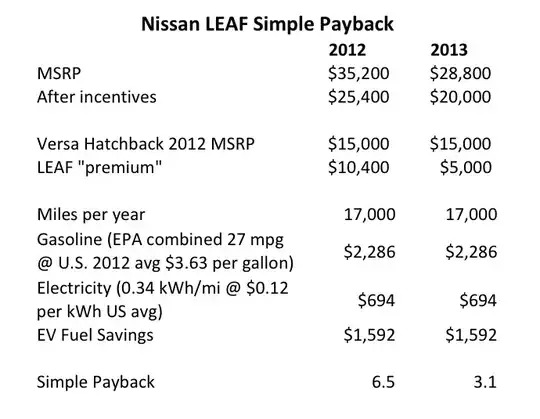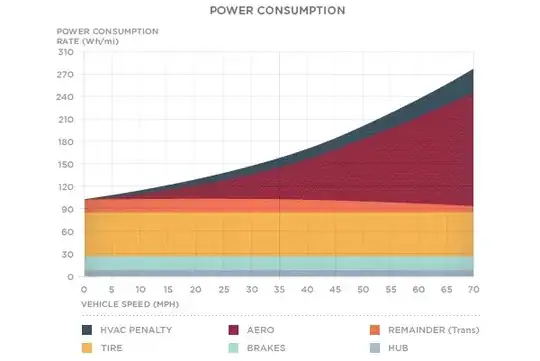I have the greatest respect for the work of the Rocky Mountain Institute, but this recent blog post triggered my general scepticism towards electric cars, or more specifically, their fuel efficiency. This is how the RMI calculates the payback for a Nissan LEAF:

I'm assuming their numbers for mpg and kWh/mi as well as the respective fuel prices are sound. Then, an almost 75% cost saving on the fuel indicates a vastly superior fuel efficiency of the electric car. This seems very counterintuitive to me, as I would think producing the electricity, transporting and storing it and then using it to drive the wheels loses a lot of energy along the way, compared to going from thermal directly to kinetic energy.
Now, if we used the same kind of fuel to drive the shaft at the power plant and the one in the car's motor, I guess the large motor at the power plant can be built more efficiently, but I have a hard time imagining that this outweighs all the losses of distributing the power plant's energy via wires and batteries.
Conversely, if we took the electric car and replaced only its motor with the most efficient combustion engine we have, would that show the same superiority over conventional cars, meaning the electrical car's advantage is not the motor technology but that it's generally more efficient?
Intuitively, I would think that distributing the fuel and generating the power in the car makes more thermodynamic sense.
Note that I'm well aware of the fact that there might be other reasons for electric cars (less pollution locally, ability to use things like wind turbines as the energy source etc.). But just focussing on the fuel-to-motion analysis, aren't electric cars much less efficient?
Since the comparison is a financial one, what might be reasons for the great price difference, if the electric really is less efficient thermodynamically?
